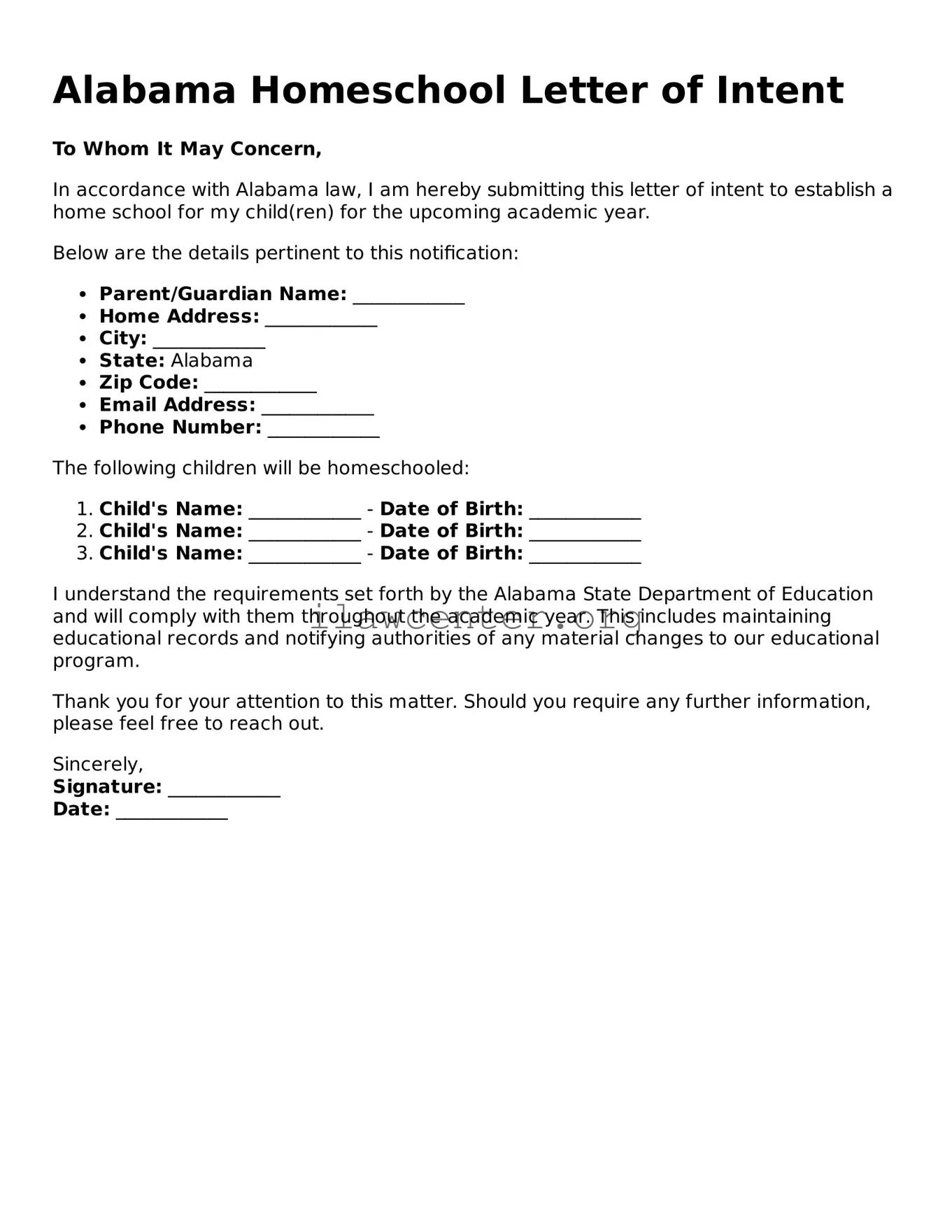Filling out the Alabama Homeschool Letter of Intent form can seem straightforward, but there are common mistakes that many make. Understanding these pitfalls can save time and reduce frustration. A significant error often occurs in the date section. Some families forget to list the correct starting date for their homeschool program. This information is crucial since it marks the beginning of the educational year for your child. Be sure to stay precise.
Another mistake involves incorrectly identifying the name of the homeschooling parent. It may seem simple, yet this section needs careful attention. If the name is misspelled, it can lead to confusion later on. Verify your name against official documents to ensure accuracy.
In addition, failing to provide complete information about the children being homeschooled can result in problems. Parents often omit necessary details such as birth dates or grade levels. This information helps local education authorities understand your homeschooling situation better.
Sometimes, parents overlook the requirement to list the educational curriculum they plan to use. This omission can raise red flags and delay the approval process. Being clear about your curriculum gives authorities a better understanding of your educational goals.
Many individuals mistakenly think that signing the form is all that is required. However, forgetting to submit the form to the correct local school board is another common error. Make sure you know where to send your Letter of Intent and send it promptly.
It's also important to understand that some families fail to keep a copy of the submitted Letter of Intent. This error could create issues later if you need to provide proof of your homeschooling plans. Always retain a signed copy for your records to avoid future complications.
Another frequent mistake involves not providing the required number of days for your educational schedule. Alabama law mandates a minimum number of instructional days. Parents may not specify this and miss an important compliance requirement.
Some submitters also neglect to update their form if there are any changes in their circumstances throughout the year. If a child moves to a new grade level or if there’s a change in the number of children being homeschooled, these updates must be communicated to the school board.
Misunderstanding how to handle the submission process is another hurdle many face. Some may try to submit the form electronically or through an unapproved method. Knowing the proper protocols of submission can streamline the process.
Lastly, not paying careful attention to deadlines can also be an issue. Many families miss the required timeline for submitting their Letter of Intent, which can lead to compliance issues. Keep an eye on your calendar to ensure you meet the necessary deadlines. By being aware of these common mistakes, you can navigate the process of submitting your Homeschool Letter of Intent in Alabama more smoothly.
